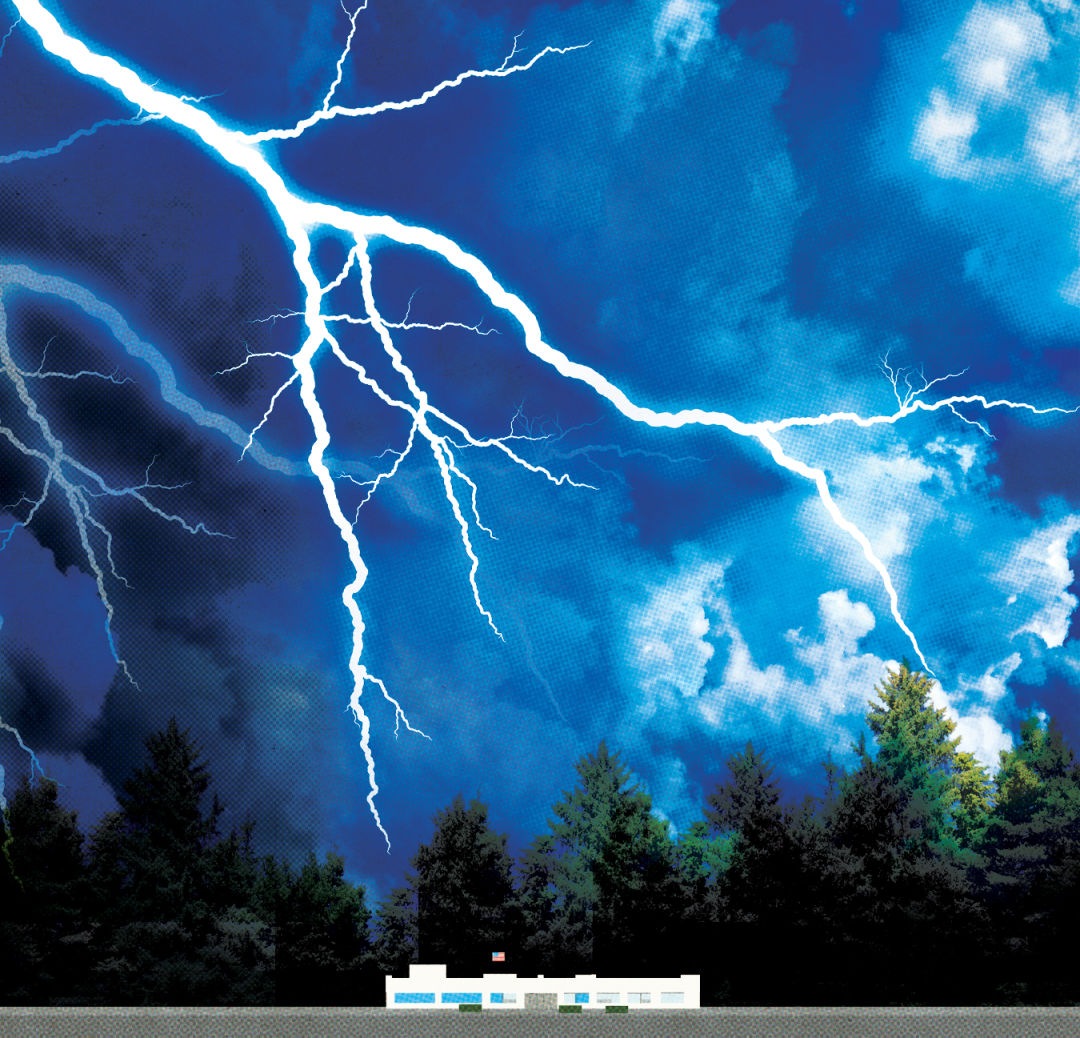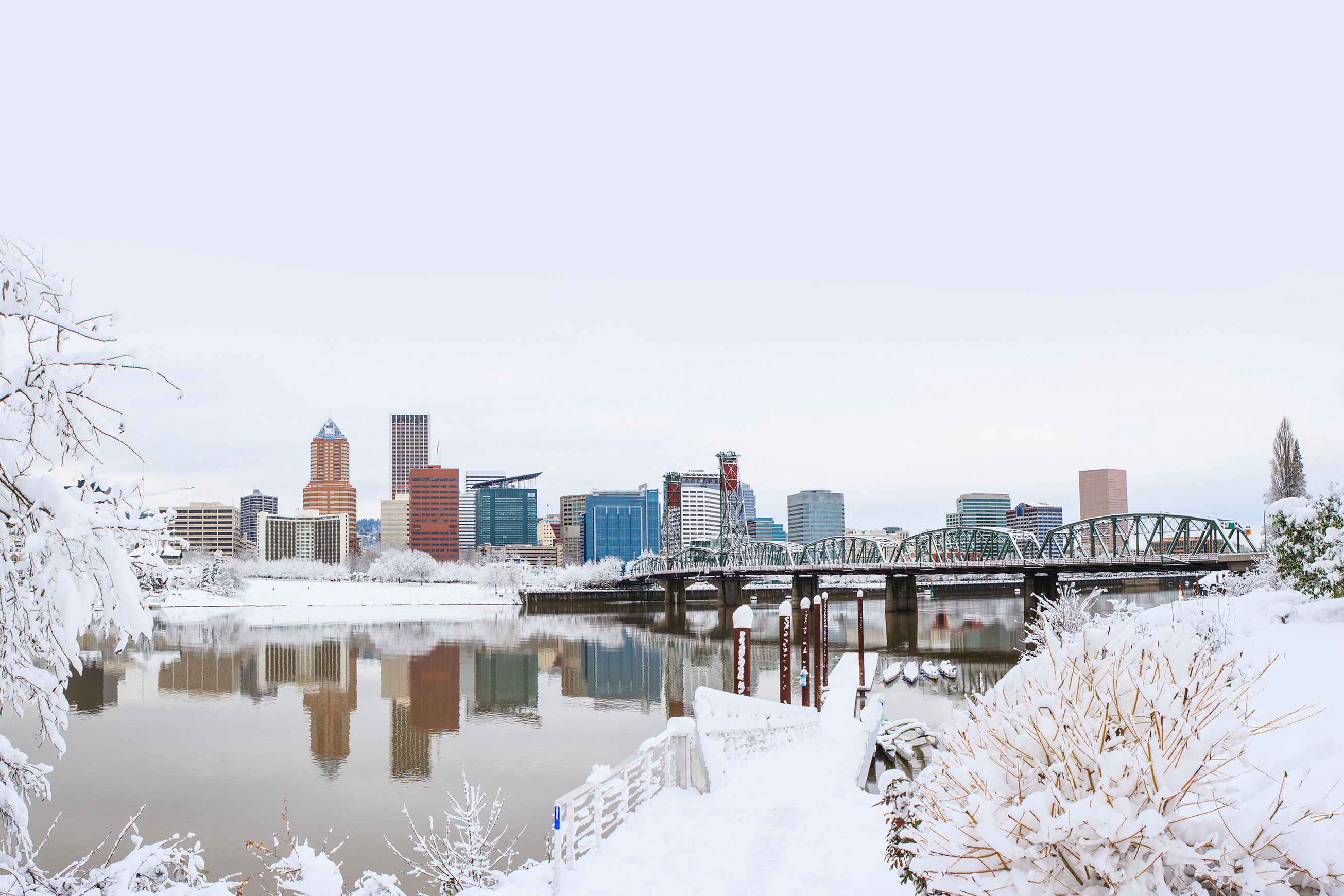When Portland Skies Darken, These Meteorologists Get to Work

Image: Amy Martin, Courtesy Lori Howard, and Courtesy Denis Rozhnovsky
Spare a thought for Matthew Cullen and his colleagues. While the rest of us hibernate through the long Cascadian winter, it’s go time for US government meteorologists.
Blink and you’d miss the National Weather Service Portland Forecast Office in Parkrose. Its unremarkable façade blends in among the office and retail parks. But inside you’ll find a thrumming nerve center resembling a financial trading desk—a bank of screens bearing the latest satellite and radar images, sensor readings, webcam transmissions, and, for breaking alerts, local TV news.
With an area of coverage running east-west from the Gorge to the coast and north-south from southwest Washington through Eugene, intel from the office’s 16 meteorologists helps crews fight wildfires, ship pilots navigate the Columbia’s treacherous shoals, and PDX air traffic controllers determine the least blustery flight paths. Chances are you’ve felt their hidden hand yourself—say, when local schools close ahead of incoming snowstorms. Through the wee hours, at least two meteorologists keep vigil, issuing forecasts at six-hour intervals.
The previous storm season began with a bang—October 2016 was the wettest on record—and kept on coming. December’s freezing rain glazed Portland in ice; then last January a snowstorm buried much of the city under a foot-plus of snow. Through the whiteout and ensuing deep freeze Cullen logged 12- to 16-hour days. Between shifts, forecasters slept in their cubes or overnighted at nearby hotels.
“Because of the computing resources, we need to be here,” he says. There’s been little letup since. A damp 2017 spring growing season and scorching summer fueled an incandescent fire season.
“Vegetation had time to cure,” remarks Cullen. “All it took was a spark.”
NWS meteorologists crisscrossed Oregon embedded with firefighters. Back at HQ they staffed a dedicated fire-weather desk, providing spot forecasts to teams battling blazes.
Cullen says he wouldn’t have it any other way. Smitten by the weather since being awed by lightning as a kid in St. Louis, he relishes his work.
“I know people are making safe decisions based on what we say; that’s the most rewarding part of the job.”




